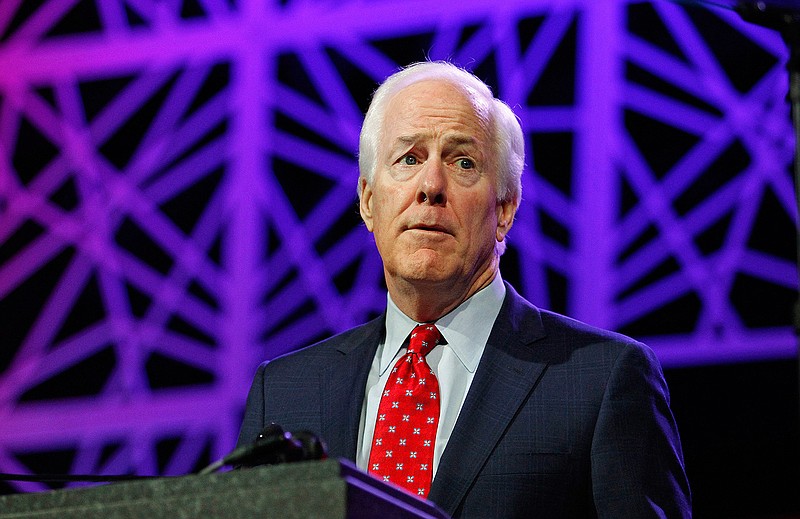WASHINGTON-As Washington approached a possible partial government shutdown over the U.S.-Mexico border wall this past week, Texas Sen. John Cornyn was once again pitching more pragmatic solutions to ease the crisis at his state's border.
The Texas Republican's ideas are now far from what the conservative base of his party wants.
While President Donald Trump is adamant about getting $5 billion for a concrete wall along the southern border, Cornyn is pushing a more holistic approach.
"I've always believed (the solution) was a combination of physical barriers in hard to control areas, particularly urban areas where a quick dash across the border can mean success" illegally reaching in the United States," Cornyn said. "But many of our challenges have to have a technology base, radar, ground censors you name it, then of course the personnel."
Republicans and Democrats at an impasse over how much money to spend on a wall meant to address the crisis of migrants and asylum seekers arriving at the border.
If they can't reach an agreement by next Friday, some government agencies, including the Department of Homeland Security, will run out of money and have to at least partially shut down.
Cornyn, whose state includes more than 1,200 miles of the U.S. border with Mexico, last year introduced a border-wall plan that would rely on technology to monitor areas where a wall is less practical.
The proposal has not been widely embraced by lawmakers from either party, as both parties have retreated to their corners on the issue after Trump's election.
"If we just finally threw up our hands and do what Democrats want on immigration, which is bring in more and more undocumented Democrats, then eventually that same cancer that's destroyed the rule of law with regard to border security and immigration beings to affect other facets of our lives as well," said Rep. Steve King, R-Iowa.
King is one of the Republicans' loudest anti-immigration voices. In a party that lost many of its more moderate voices in this fall's midterm elections, he will soon be one of the highest-ranking Republicans on the House committee overseeing policy on immigration and the border.
Cornyn, who presides over the Senate's corresponding committee, is seeking re-election in a state that's grown increasingly worrisome for Republicans in 2020. Though he faced a larger challenge from the right in his 2014 race, Cornyn went out of his way to draw a contrast with Trump's border policies this week, saying Texas Republicans need to move beyond "primary politics."
"While I have been generally supportive of the president and his policies, I would note my difference on a number of issues like trade, and some of the tactics used even in terms of border security," he said.
A pragmatist whose role as Republican vote-counter includes seeking an agreement on some of the party's stickiest issues, Cornyn has long been among his party's negotiators with Democrats on immigration and border matters.
The day after Trump's televised dispute with Democratic leaders, Cornyn met at a barely-noticed hearing on the Senate's border panel with Sen. Richard Durbin, D-Ill., who laid out Democrats' ideas for easing the crisis at the border.
"Based on what you're saying I can see some common ground for investing in scanning devices customs officers, dealing with the straw purchasers (of firearms) and the bulk cash transfers across the border," Cornyn said to his Democratic counterpart.
Nevertheless, he said, "I see some components of legislation we could work on together, like we worked on with criminal justice reform," referring to a plan the two men helped craft to overhaul the nation's prison system.
The hearing sought comments from officials at the Department of Homeland Security, Drug Enforcement Administration and the White House Office of National Drug Control Policy to "look beyond our borders and examine the larger problems contributing to the crisis," Cornyn said.

